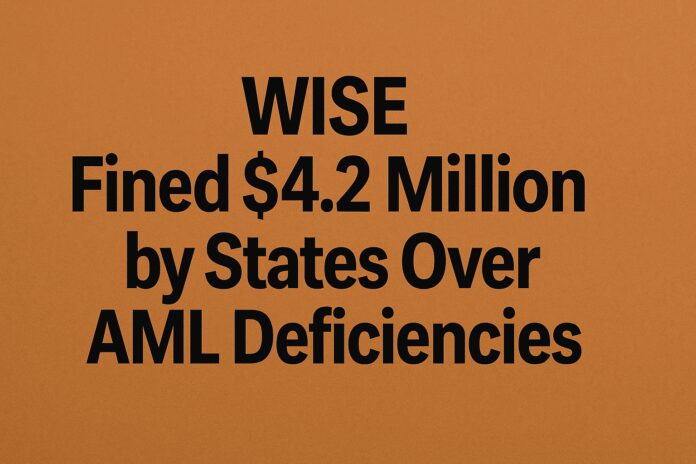Wise, the global money transfer platform formerly known as TransferWise, has been fined $4.2 million by the Conference of State Bank Supervisors (CSBS) for anti-money laundering (AML) compliance failures. The fine follows a multistate examination of Wise’s U.S. operations, as reported by Finextra.
Though the fine is far smaller than some recent penalties, its symbolic weight is significant. It aligns Wise with a growing list of high-profile fintechs facing consequences for prioritizing growth over governance.
What Exactly Went Wrong
Between 2019 and 2021, Wise reportedly:
- Operated without a fully compliant AML program under the Bank Secrecy Act
- Had insufficient transaction monitoring and suspicious activity reporting mechanisms
- Failed to properly document risk-based customer due diligence
Despite the modest monetary value of the fine, the regulators emphasized that the deficiencies were “material” and presented systemic risks.
Context: One Fine in a Series
Wise’s penalty is the latest in a wave of enforcement actions targeting fast-growing fintechs:
- Monzo was fined £21 million by the UK FCA for similar AML failures
- Vocalink, which underpins UK Faster Payments, was fined by the Bank of England for disclosure and risk oversight breaches
- Ziglu, a UK-based crypto wallet provider, entered administration amid compliance challenges
Taken together, these cases highlight an emerging reality: regulators are ramping up expectations for compliance maturity, regardless of company size or sector.
Why This Fine Still Matters
At $4.2 million, the fine won’t materially impact Wise’s bottom line. But the regulatory message is loud and clear:
There is no compliance exemption for scaling companies — not in payments, and not in 2025.
This has several implications:
- Trust risk: Partners and banking counterparties may re-evaluate their exposure
- Licensing implications: International regulators (especially in the EU, UAE, Singapore) could impose stricter scrutiny
- Operational credibility: Investors and the public markets will demand clearer proof of regulatory fitness
Conclusion: The AML Spotlight Is Now Global
With AML compliance now a global strategic issue, fintechs like Wise must ensure their compliance infrastructure grows in step with their user base.
The cost of regulatory noncompliance is no longer just financial — it’s reputational, operational, and existential. If firms want to keep expanding across jurisdictions and building trust with regulators, AML can’t be an afterthought. It has to be core infrastructure.




